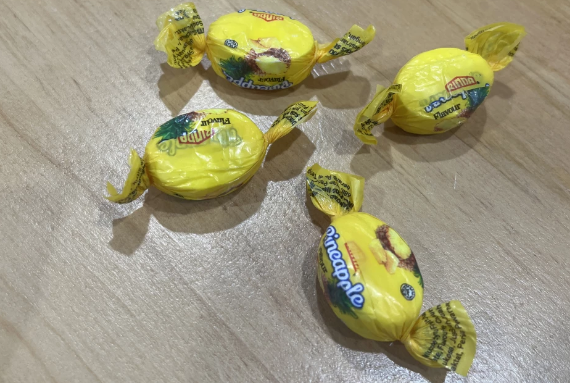A batch of pineapple sweets distributed by a New Zealand charity has tested positive for potentially lethal levels of methamphetamine, police reported Wednesday, prompting an urgent effort to remove them from circulation.
The Auckland City Mission, an anti-poverty charity, alerted authorities after discovering that some of the sweets had been contaminated with the highly addictive and illegal drug.
“An investigation is under way and police are treating the matter as a priority given the risk to the public.”
The New Zealand Drug Foundation said a test sample of an innocuous-looking piece of white candy in a bright yellow wrapper indicated it contained methamphetamine.
Foundation spokeswoman Sarah Helm said the tested sweet contained approximately three grams of meth — hundreds of times greater than the common dose taken by users.
“Swallowing that much methamphetamine is extremely dangerous and could result in death.”
Helm urged people who had received confectionaries from the Auckland charity not to consume them.
“We don’t know how widespread it is.”
The candy was donated anonymously by a member of the public, the charity said, in a sealed branded package. The sweets were then distributed into food parcels.
“There is a potential for New Zealand that there is a lethal substance dressed up as a lolly (sweet),” Helen Robinson from Auckland City Mission told reporters.
“We have to work on the assumption that this was a kind of batch.”
The charity estimates that up to 400 people may have received the tainted sweets in a food package. Robinson reported that so far, eight families have been affected, but no one has been hospitalized.
In one instance, a parent gave a candy to her child, who immediately spat it out. Robinson noted that the potent, contaminated sweets were described as tasting “acrid and revolting.”
She cautioned that even a small touch or lick of the substance could cause serious harm. One of the contaminated sweets was sent for testing after someone who began eating it felt unwell and noticed a bitter taste.
The drug foundation warned that methamphetamine can cause symptoms such as chest pain, a racing heart, seizures, delirium, and loss of consciousness. Helm told Radio New Zealand that it is not uncommon for drug smugglers to conceal illegal narcotics in food.
“We suspect somebody hasn’t intentionally sought to poison children. It will be up to police to determine,” she added in the interview.



